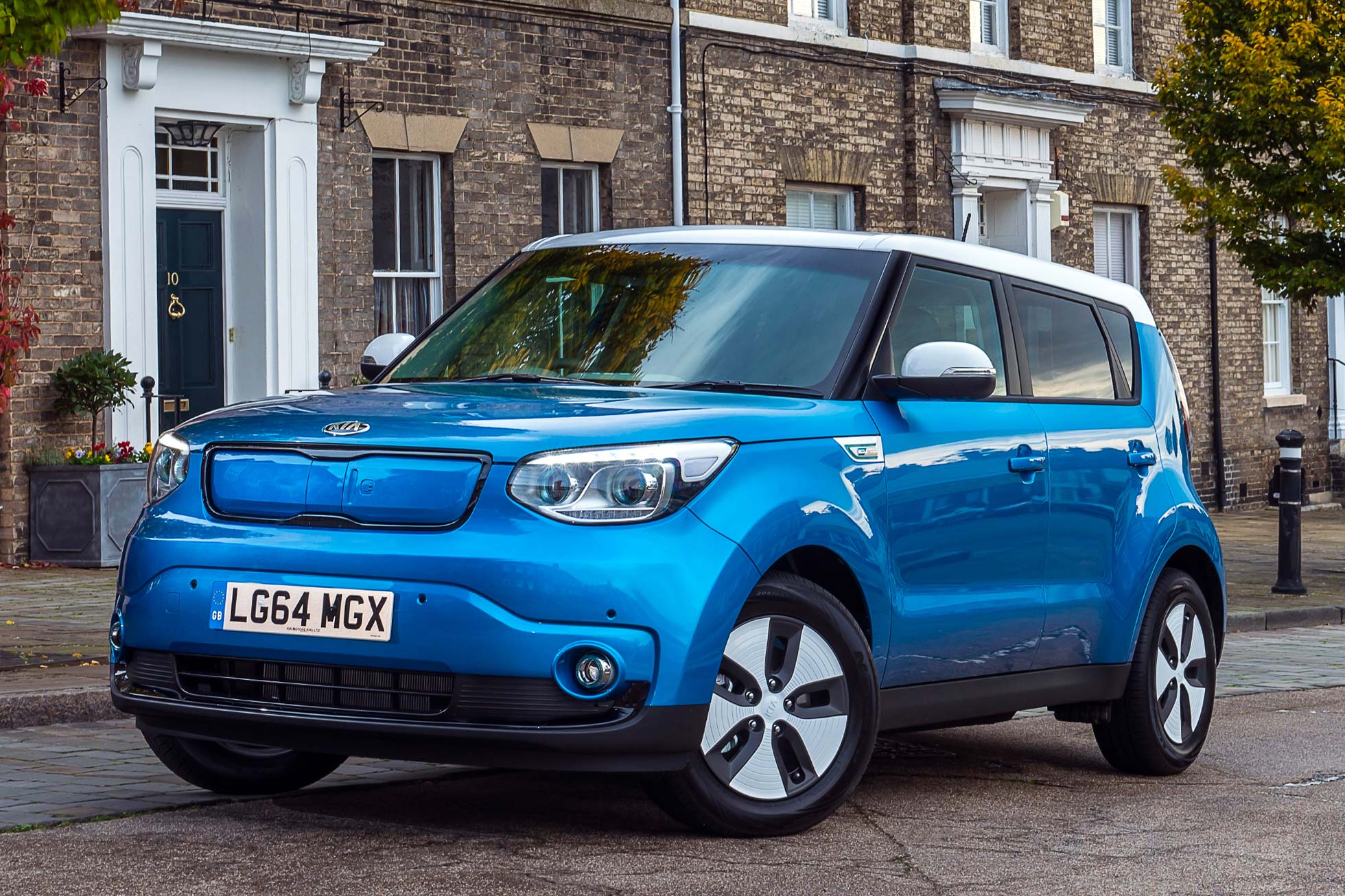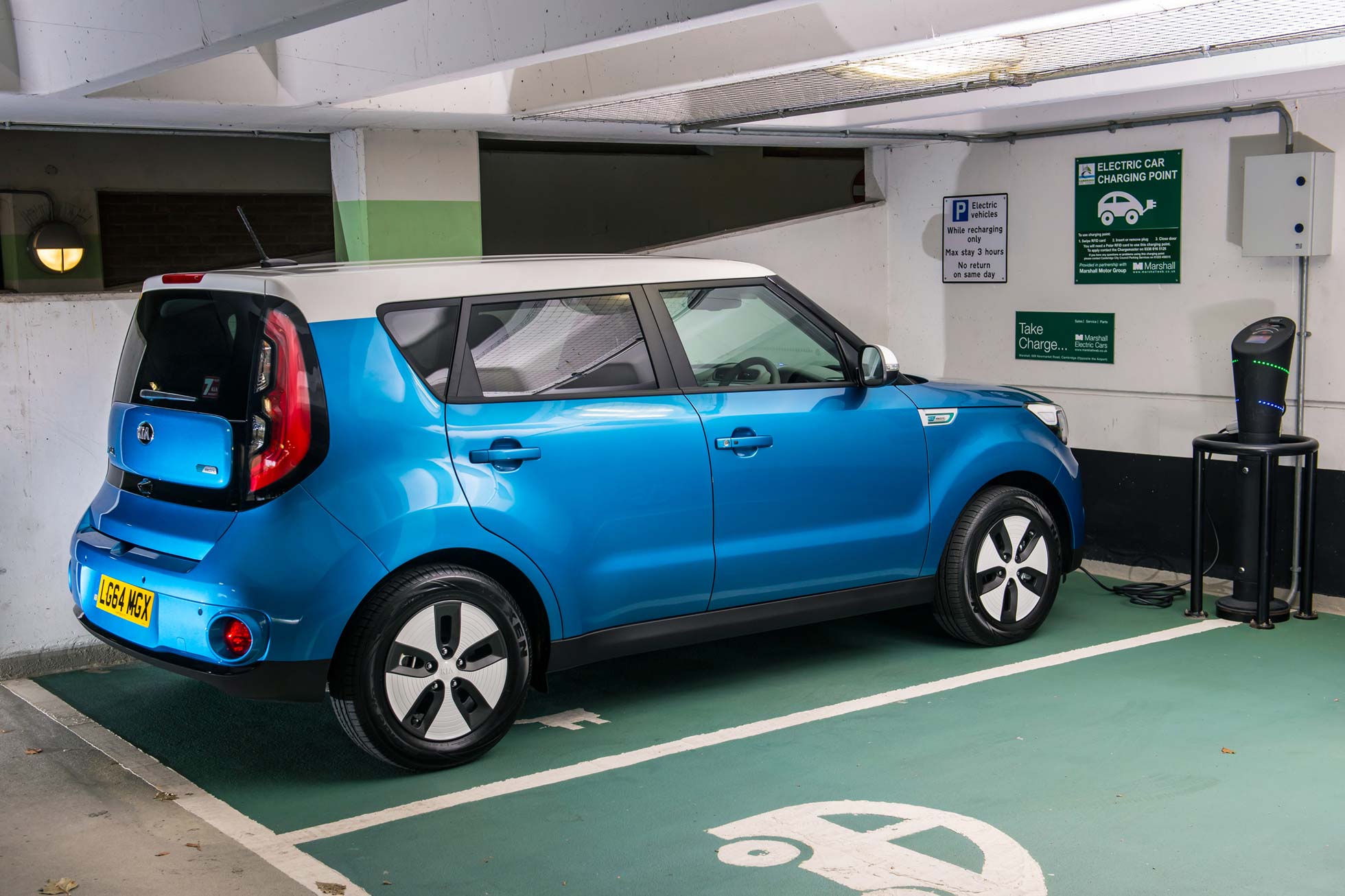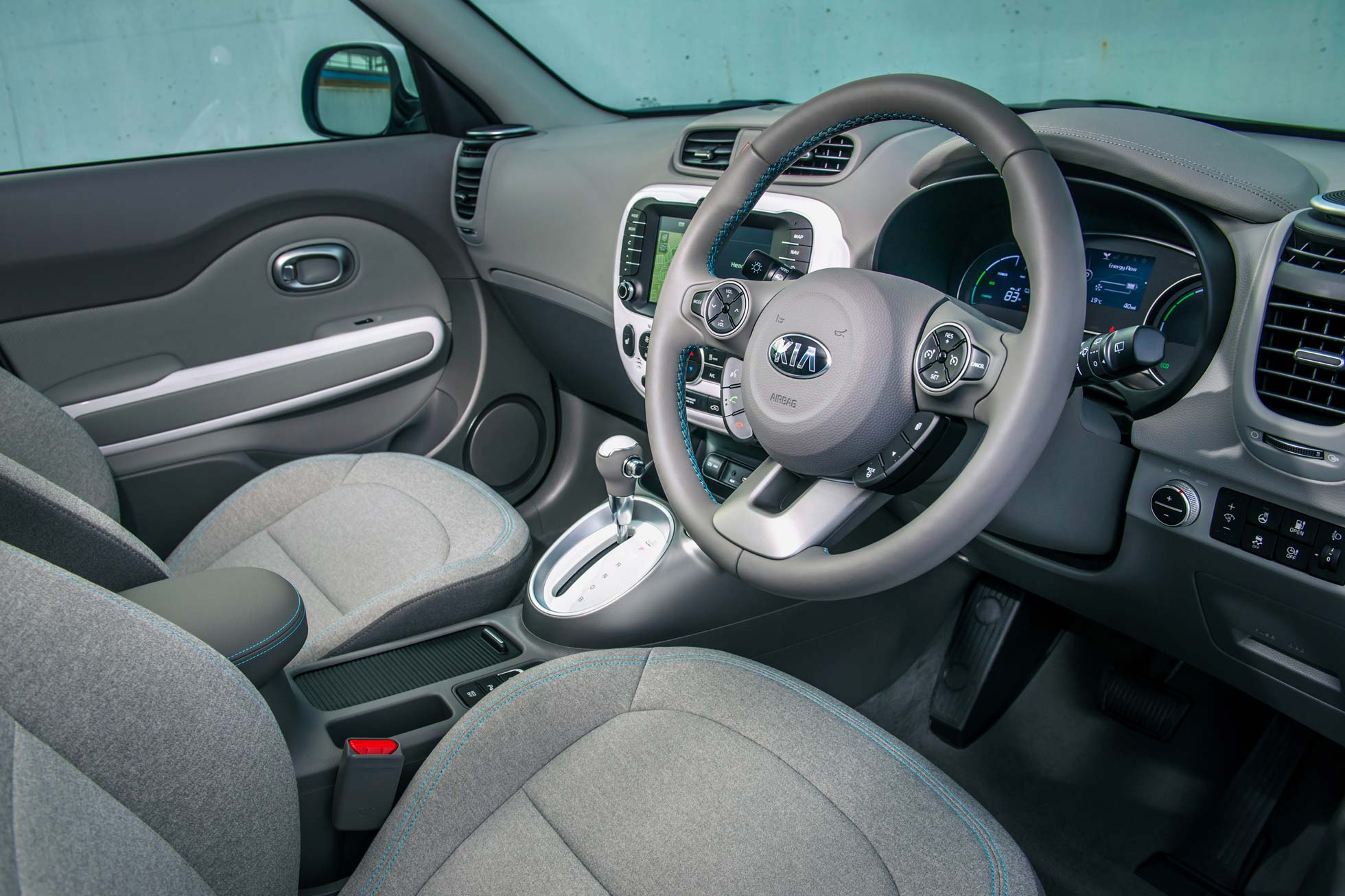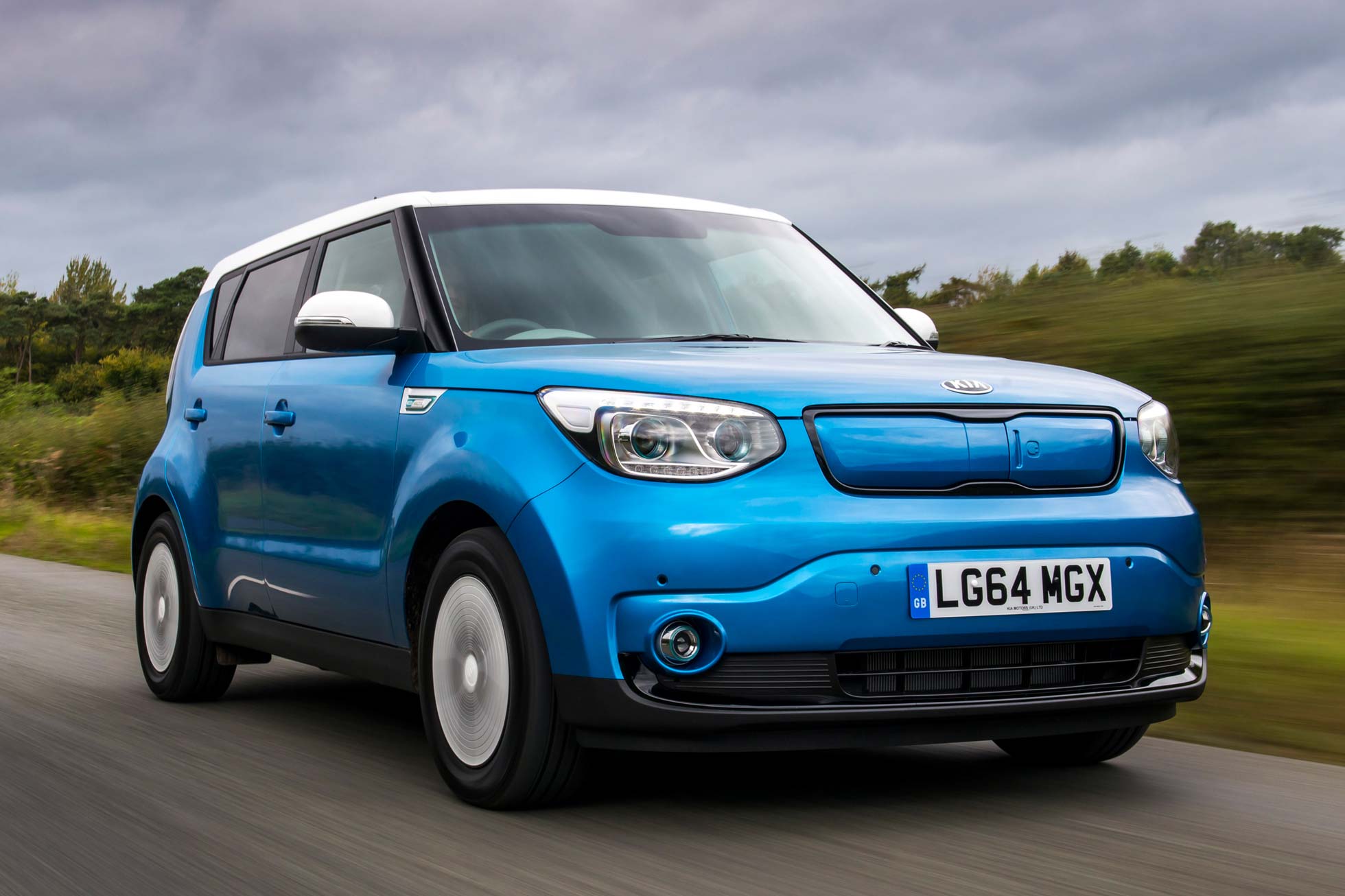 The Kia Soul EV won’t sell in big numbers – but if you can justify £25,000 on one, you might be pleasantly surprised.
The Kia Soul EV won’t sell in big numbers – but if you can justify £25,000 on one, you might be pleasantly surprised.
Andrew Brady | November 2014
Are electric cars the future? It’s a subject that’s very much open to debate. Some drivers are absolutely sold on the idea, while others question their limited range and how green they really are.
The same is true with manufacturers. A few are jumping head first into the electric car revolution, while others are avoiding it in favour of small capacity, turbocharged petrol engines, or even hydrogen power. Some, like Kia, are being cautious, dipping their toes in the water and seeing what happens.
This explains why the Korean carmaker has electrified its Soul mini-SUV, but plans to sell it in very small numbers. There’s no fancy new production line – all Soul EVs are made on the same line as the regular Soul, in an attempt to keep costs down, and just 5,000 a year are expected to be built. And here’s the clincher: no more than 200 are expected to come to the UK in the first year of production.
The reason for this? “Some manufacturers are flooding the market,” says Kia. “They’re selling electric cars to people whose lifestyles aren’t suited to electric cars, and it’s damaging their reputation.” This leads to tales of range-anxiety, and poor residual values, which Kia wants to avoid.
 What’s the Kia Soul EV like to drive?
What’s the Kia Soul EV like to drive?
Central London isn’t an obvious place for a car launch, but it really flatters the Soul EV. Threading it through traffic, instant torque available whenever you press the accelerator, it’s hard to deny an electric car is second only to a jetpack in conditions like this.
While adapting a ‘regular’ car might seem an easy way of offering an electric vehicle, it does present some challenges. For a start, there are the big, heavy batteries that need putting somewhere. In this case, they’re hidden under the floor. And then refinement can be tricky. A combustion engine does a great job of drowning out noises – remove that, and even the slightest noise can prove irritating.
But Kia’s done a commendable job. There are no battery whines sometimes associated with electric cars, and road noise is minimal (although, as hard as we tried, we couldn’t get near to the Soul’s 90mph top speed in central London). What’s really impressive is how well the Kia Soul EV rides. The extra 274.5kg from its batteries could easily result in a crashy ride, but Kia’s tweaked the springs to take the extra weight into account, and it deals with bumps and potholes exceptionally well.
Charging using a domestic power supply takes 10 – 13 hours from empty to full, but this can be reduced to five hours using a public fast-charge point. Alternatively, using a public rapid charger, it can be boosted to 80 per cent charge in just over half an hour. From a full charge, expect to get a range of around 132 miles – less than a petrol or diesel car, obviously, but enough for most urban journeys.
 Is the 2015 Kia Soul EV worth £24,995?
Is the 2015 Kia Soul EV worth £24,995?
The Kia Soul EV is expensive, there’s no denying that. When we first drove it in Korea last year, there were hints that it could be introduced in the UK at a much more palatable £20,000. It’s actually priced just short of £30,000, but the government’s plug-in car grant brings it down to £24,995. That’s not far shy of a BMW i3 – not a direct rival, Kia will say, as the Soul is an SUV, but anyone interested in the Soul as a trendy electric car would be silly to discount the BMW.
Especially as the Kia Soul EV feels like a cheap car inside. Sure, there are some nice features (such as the colour-changing speakers), but Kia’s tried to be green by using lightweight, bio-degradable materials – and you can tell.
Like the BMW i3, but unlike some electric cars (Renault Zoe and cheaper versions of the Nissan LEAF), you actually own the battery. Buying a car but not owning the engine might sound like a preposterous idea, but some people go down the battery leasing route to a) save money on the initial purchase price and b) pass the buck when your battery’s capacity starts to wane a few years down the line.
But, if reliability is a concern, the Soul EV comes with Kia’s impressive seven-year/100,000 mile warranty. Not only will this help resale values, it could also potentially give the Soul a unique selling point over other electric cars.
To spend £25,000 on a Kia Soul EV, you’re going to have to really want one. But we get the sense that the manufacturer knows that – this is more about showing off what it can do. And, if you can justify spending this sort of money on an urban runabout and fancy being an early adopter, being one of the few people who’ll buy a Soul EV could be an interesting prospect.
 MR verdict: 2015 Kia Soul EV
MR verdict: 2015 Kia Soul EV
Ignoring the price for a moment, the Kia Soul EV is a very respectable attempt at an electric car by a mainstream manufacturer. Spend an hour or two in heavy, city traffic with one and even the most hardened petrolhead would have to admit that it sort of makes sense.
It looks good too – no doubt an important consideration for trendy urbanites. Sure, it’s not as in-your-face as the BMW i3, but driving around London in the Caribbean Blue model we tried (the only alternative is silver), it attracted plenty of attention. The unusual 16-inch lightweight alloys hint at its eco-credentials, as does the blanked out radiator grille and unique rear light clusters.
Rivals: 2015 Kia Soul EV
- BMW i3
- Nissan LEAF
- Volkswagen e-Golf
We’ve talked about the BMW i3 a lot, but it really is leading the way in the electric car revolution. It’s properly futuristic, and almost seems to offer excellent value for money compared to the Kia. The Nissan LEAF is the best-selling electric car and, with prices starting at £16,490, there’s a good reason for that. Like the Soul EV, the e-Golf is based on a regular car, and might be more suitable for someone who doesn’t want to shout about their green credentials.
Specification: 2015 Kia Soul EV
Engine: n/a
Gearbox: n/a
Price from: £24,995
Power: 83hp
Torque: 210lb ft
0-60mph: 10.8 seconds
Top speed: 90mph
MPG: n/a
CO2: 0g/km